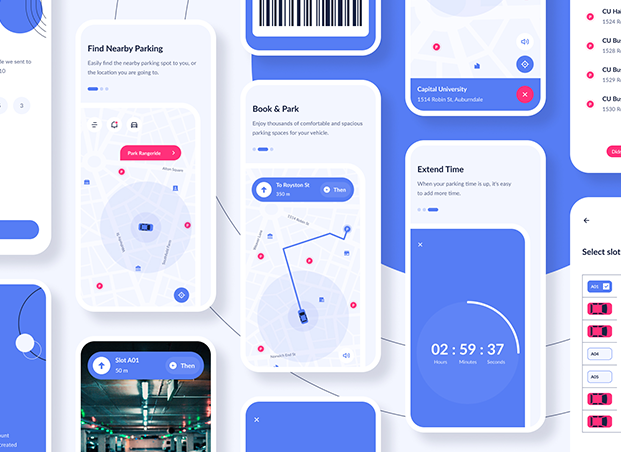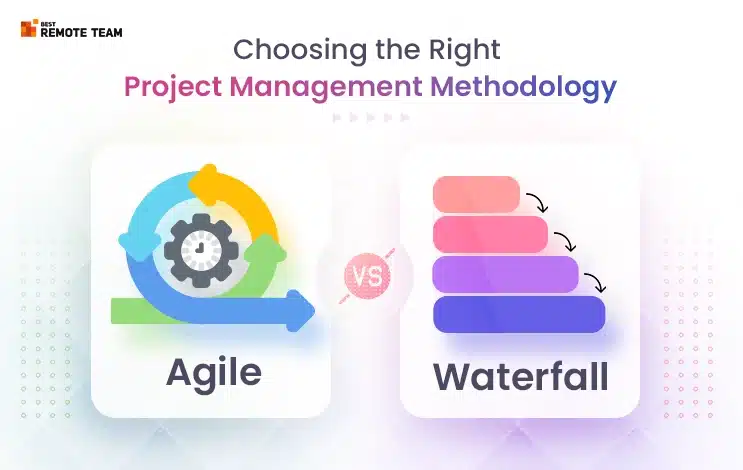Definition and significance in today’s business landscape
Today digital transformation is one of the fastest growing trends among all industries. Due to constant new innovation, it’s important for all business to update their business according to new trends and popular technologies.
Research says that 77% of companies have already realized the importance of digital transformation and already started implementing it for their business. While 74% of businesses consider it an urgent priority.
Digital transformation is a huge market, worth $911.2 billion that is expected to grow to $3.29 trillion by 2030. This shows how important it is in today’s time.
Before going into much detail, let’s understand the basics.
What is digital transformation?
Digital transformation is a famous business strategy that includes using the latest technologies and tools to enhance and modify existing business processes, products, or customer services to fulfill the evolving requirements of the customer and stay competitive in the digital age.
In short digital transformation is the best upgrade you can do to future-proof your business.
What are the key areas of digital transformation?
If your business needs improvement with its process, and working style to enhance operational efficiency, then process transformation is the area where you should improve.
This is all about improving how your business operates by using digital tools and automation. Instead of sticking to slow, manual processes, you can have smarter workflows by using AI, cloud computing, and automation in your business process to automate, boring and repetitive tasks and save time and money both with proper usage of resources.
For example: you can handle your customer queries more efficiently with AI-powered chatbots and avoid long waiting times.
#2. Business Model Transformation
If you are not seeing any growth or improvement in the business then you need to rethink about your entire business model. This means moving beyond traditional methods and using digital platforms to offer services in new ways.
Business transformation is more focused on revenue growth and reaching potential customers.
For example: Netflix shifted from DVD rentals to a fully digital streaming service. Hence this completely transformed the entertainment industry.
#3. Domain Transformation
Your old domains where you serve currently might not be enough. It’s important to expand into new markets with digital advancement to expand your business to multiple horizons. This is where domain transformation comes in.
For better growth and better revenue generation, you can step into new industries and create services or products relevant to them.
For example: Amazon started as an online bookstore but later expanded into cloud computing with AWS (Amazon Web Services).
#4. Cultural & Organizational Transformation – Changing the Mindset
This includes changing the mindset and culture as per the customer’s behavior and their point of view because sometimes technology alone isn’t enough—your team needs to be aligned and compatible with users culturally. This improves emotional connection and leads to better engagement and business growth.
This also includes changes in the company’s working style, deadlines, resource usage, and flexibility in other things to make a better working environment.
For example, Companies are now getting comfortable with a remote work mindset by using collaboration tools like Slack and Zoom. This promotes a digital-first mindset, giving good impressions to users that the business values and trusts the flexibility of employees.
Reasons why most digital transformation fails
According to research, Only 35% of organizations succeed in their digital transformation efforts. This shows many of them might be implementing digital strategies wrong or doing something wrong. Depending on business-to-business needs, there are various reasons why many digital transformations fail even after so much effort. Below are some reasons, let’s explore.
#1. Not taking documentation seriously
Documentation is an important part of every business whenever beginning with something new. It helps to understand the challenges, goals, pain points, and things to work clearly.
So if you are not taking it seriously, this might be one of the reasons for your digital transformation failure. The documentation is like an instruction manual that helps to keep note of goals, processes, and what’s working and what’s not.
#2. Lack of in-detailed data analysis
Data is an important asset in digital transformation that is used for making useful strategies. If you’re not digging deep into your business data, you can miss the key insights.
#3. Not understanding the market properly
Digital transformation is mostly about solving problems. And to do that, you need to understand your market and customers thoroughly. If you don’t have a better understanding of the market, you can create a useful solution that does not help your customers in any way.
#4. Outdated company culture
Having an old-school mindset can stop your business growth. If your company is stuck in traditional ways of working and isn’t open to new ideas, it’s going to be tough to implement digital change.
#5. Not changing management strategy
Change begins with management. If your management strategy doesn’t align with digital transformation goals, your transformation fails. Managers need to lead by example, communicate the vision clearly, and be actively involved in the change process.
#6. Thinking of digital transformation as an IT job
Many businesses assume that digital transformation is an IT task but it’s not. It’s the task of entire team members from marketing and HR to customer service and sales.
Successful digital change is only possible when an entire company puts effort towards adapting things that are better for company growth as well as customers.
#7. Poor technology choice and process
Choosing the wrong technology splashes water on entire efforts. Hence it’s important to choose the technology that is scalable and compatible with your goals.
Pro tip: Ask about the technology choice according to your business goals to a digital consulting expert.
Core Aspects of Digital Transformation Services
Digital transformation is capable of filling any missing gaps in the business and unlocking unlimited opportunities and growth. Below are some of its core aspects that are somehow part of the digital transformation journey, no matter what industry you belong to.
#1. Digital Strategy Consulting
Strategy consulting is the first and most important step when you choose digital transformation. With a solid digital strategy consulting, you can create a best roadmap using technologies to perfectly fit into your business and user needs.
#2. Cloud Transformation
Cloud transformation is a must to keep up with the evolving tech world. It gives the flexibility to scale the business and easily move and access data securely via cloud services.
#3. Data Analytics & Business Intelligence (BI)
In today’s world, data is everything. Data analytics and BI help businesses understand customer behavior, market trends, and internal processes. With quality information, you can make smarter, data-driven decisions for your business.
#4. Enterprise Mobility
Enterprise mobility involves making business processes and data accessible from anywhere. With mobile solutions, employees can work on the go, collaborate more easily, and keep the business running smoothly, no matter where they are.
#5. Artificial Intelligence (AI) & Machine Learning (ML)
AI can be used to improve any part of the business however you want. You can simply integrate AI into the process, or specific task and instruct it to work accordingly like automating, data analysis, translation, identifying problems, bugs, and more.
#6. Customer Experience (CX) Transformation
In a world where customer expectations are higher than ever, transforming the customer experience is crucial. By using the relevant digital tools, you can provide personalized experiences that keep customers happy and loyal.
#7. Internet of Things (IoT) Solutions
To stay connected with your customers, using IoT solutions is essential. By connecting everyday devices to the internet, it can be helpful to monitor operations, track assets, and gather real-time data for better decision-making.
#8. Cybersecurity Transformation
Change is everywhere. When businesses and things in the digital world evolve, hackers also upgrade themselves and find new ways to cyber-attacks and vulnerabilities. Hence cybersecurity transformation is important to protect data, systems, and networks by implementing advanced security measures like encryption, firewalls, intrusion detection systems, and other steps.
#9. DevOps and Agile Transformation
DevOps and Agile are two such frameworks that help to deliver software quickly and with high reliability. This way, you can responsively make changes in your business and innovations by establishing a culture of collaboration between the development and operations teams.
#10. Process Automation (RPA)
Robotic Process Automation (RPA) takes care of repetitive tasks that take up valuable time. By automating processes, you can reduce human error, and free up employees for higher-value tasks. This helps to invest energy and time where it’s actually needed, rather than wasting time on repeat tasks.
#11. Blockchain Integration
If you belong to the finance, banking, or healthcare industry, blockchain integrations play a crucial role in your digital transformation. As security is the top-notch factor while transforming digitally, blockchain integration helps to maintain high-level security and transparency among the team members.
#12. Digital Workplace Solutions
Today remote working style is in huge trend because it is flexible for employees as well as cost-saving for companies. This helps to contribute team efficiently by using digital tools like cloud storage, communication platforms, project management software, and more to work productively from their comfort zone.
#13. Legacy System Modernization
Investing in legacy modernization helps to achieve profitable results because this helps to keep the application and other software up-to-date with the current trends and delivers the best user experience.
#14. E-commerce Transformation
This includes upgrading online sales channels, flipping the website, upgrading the mobile shopping experience, or utilizing AI for recommendations tailored to the needs of the customer.
This helps you to connect your business to a wider audience and ramp up the sale.
#15. Web and Application Development
Web and app development are important ways that create good digital experiences. By developing responsive websites and user-friendly apps, businesses create digital experiences that engage customers and drive sales.
#16. Digital Marketing Solution
Using the right marketing solution is important to reach the right audience. It’s more about what solutions you use! With digital marketing solutions like SEO, content marketing, and social media campaigns, businesses can improve their visibility, attract leads, and boost sales.
Benefits of Digital Transformation
Digital transformation is beneficial for each and every business, no matter where you start. You can always upgrade your business with the right digital tools to improve work operations and achieve desired revenue growth.
#1. Increased operational efficiency and productivity
Most of the inefficiency comes when the employee is not productive. But if you use AI and automation for repetitive, lengthy, and hectic tasks then you can reduce human errors, achieve faster processes, happier employees, and smoother operations.
#2. Enhanced customer experiences and engagement
Customer today wants personalized experience that feels relatable and makes sense to them. By using AI-powered chatbots in online shopping, customer support, personalized marketing, or any other technology, you can provide quick replies and personalize the experience.
#3. Improved decision-making with data-driven insights
The days of making business decisions based on gut feelings have gone. Via the use of digital tools such as business intelligence (BI) and data analytics, companies are able to collect live insights on customer behavior, market trends, and operational performance. That is why smarter decisions, better forecasting, and a more strategic approach to growth will be the goals.
#4. Competitive advantage in the digital-first world
No one loves to use old methods and outdated technologies in today’s modern world. If you want to show your brand better than others, you must use advanced tools to provide better services than other competitors.
#5. Cost savings through automation and optimized workflows
Investing in digital transformation services helps to save you a lot of business costs because it reduces paperwork and the need for labor. You can handle non-technical tasks like customer support, data entry, and other things, automation, and other tools.









































